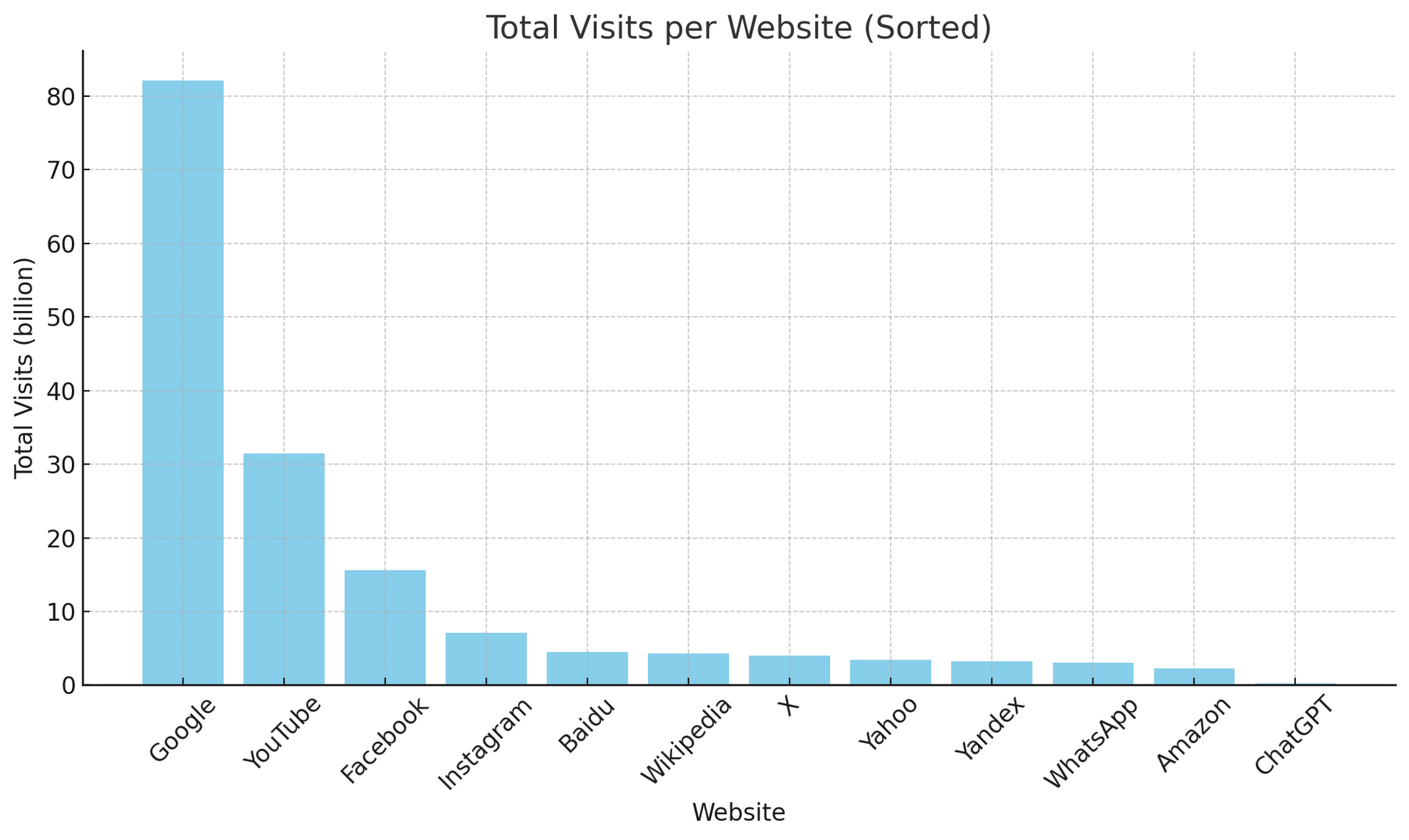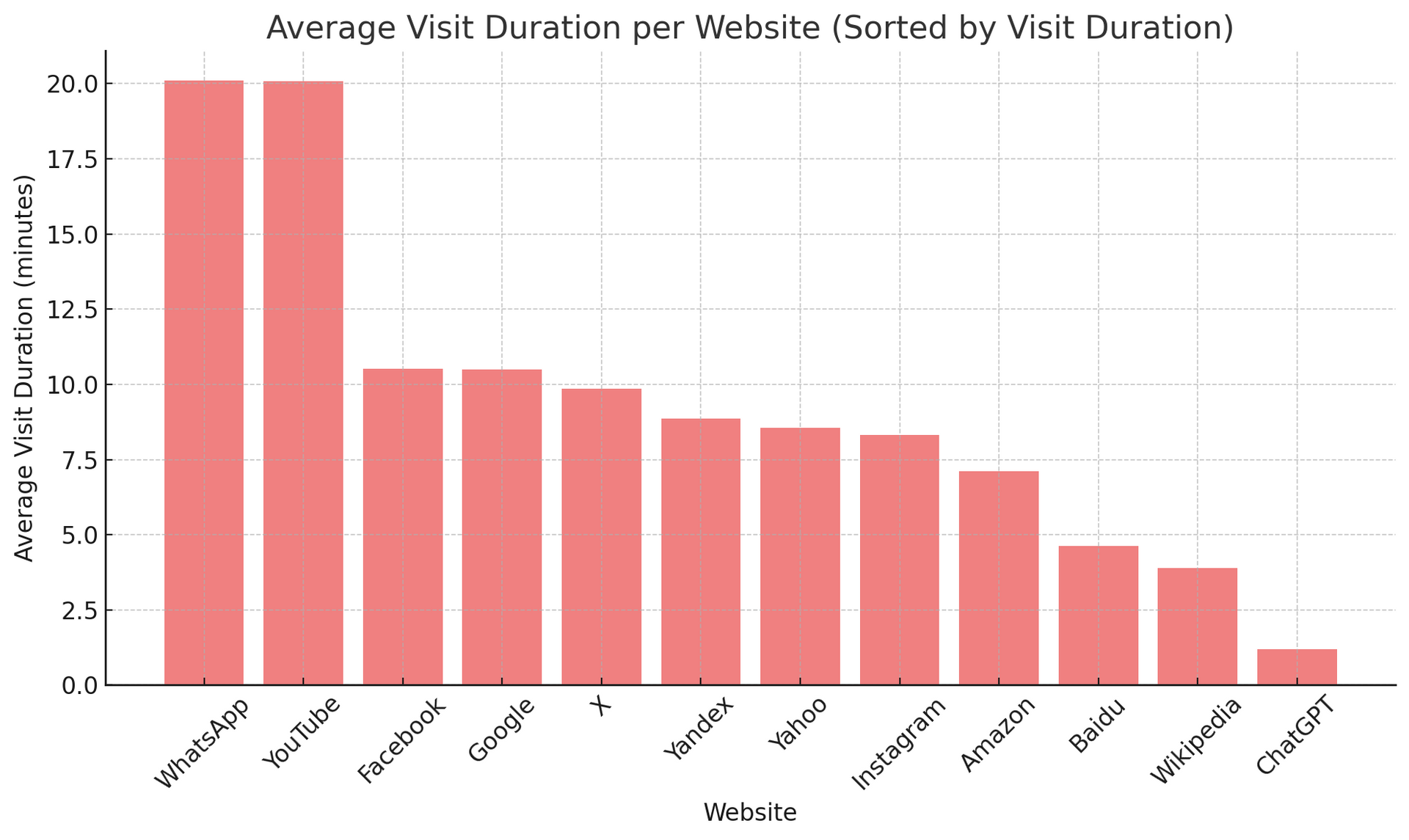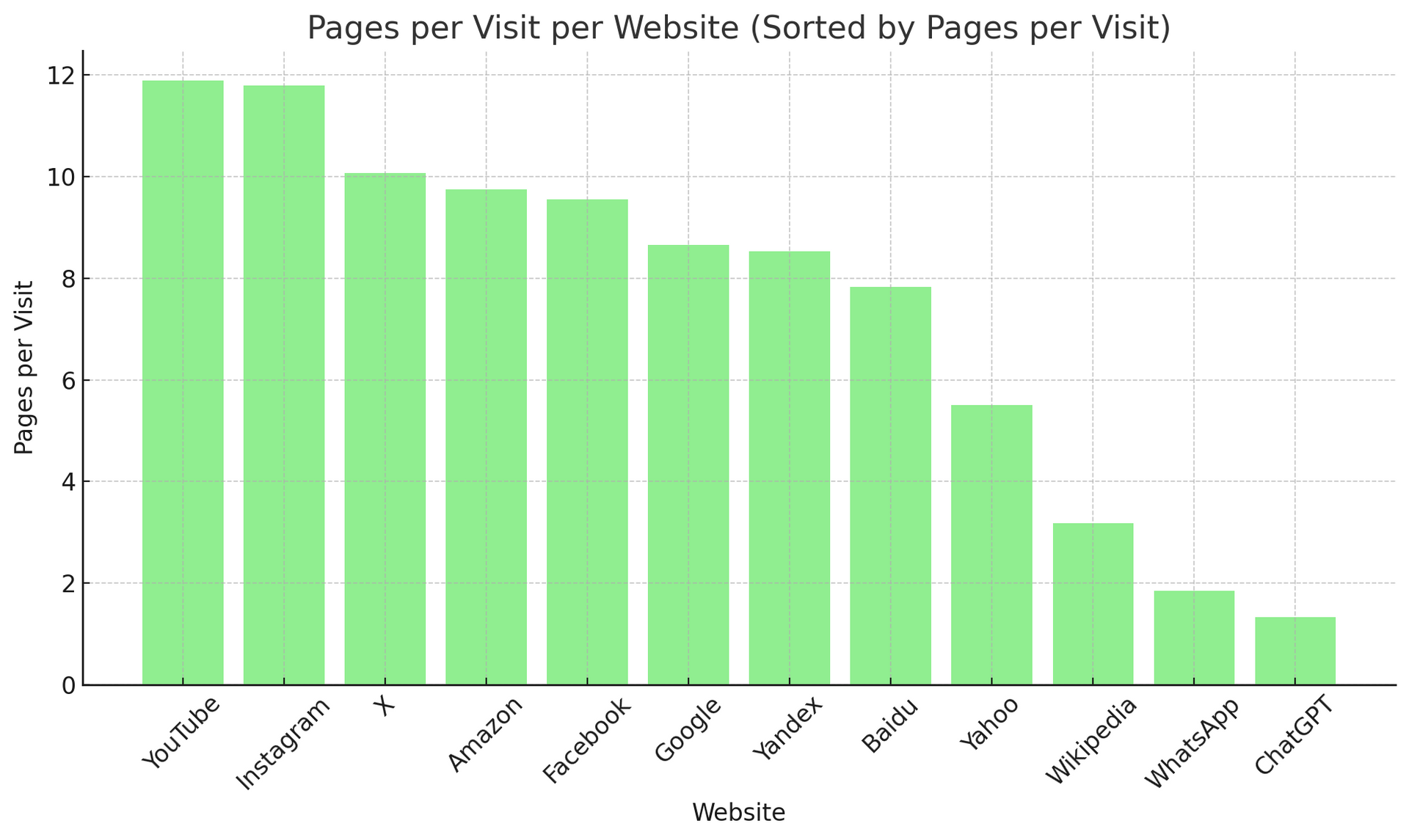Optimizing your Website for AI: How to get found by ChatGPT
In today's digital landscape, it's no longer sufficient to optimize solely for traditional search engines. With the rise of AI tools like ChatGPT and Perplexity AI (Check our blog post How does Perplexity work?) Search Engine Optimization is shifting towards the need to be provide "AI compatible content". It's crucial to rethink your SEO strategies. Here are some surprising tips and tricks that will impress even the most seasoned SEO experts.
What do Users Tell on ChatGPT vs. Google Search?
How Swiss People Search with AI Tools
In Switzerland, one third are using ChatGPT for search reasons. The latest report from
Nau Media AG
reveals surprising facts from Switzerland:
- 2/3 have not yet used ChatGPT
- 75% use Google for searches
- 25% use ChatGPT for searches
Critical research should always be done, regardless of the tool used.
But what does AI mean for Company Inbound Marketing?
We see why companies should be present in AI tools and write their content to be "AI-compatible."
Perplexity AI should be added as a relevant tool for AI Research & Search Tools as well as "GPTs" from OpenAI where companies can build their own company or task-specific AI (Check our articles about
Are
GPTs relevant for my AI Strategy?
Or
Comprehensive Guide to MyGPTs and Alternatives. Here, you can see the sources of articles and directly display graphics. Moreover, websites will soon be directly created using AI, which means companies could potentially have advantages if they are represented within these AI Tools.
Worldwide studies show happy users with AI Search
- A study comparing Google Search vs. ChatGPT found that: Users spent less time on tasks when using ChatGPT compared to Google Search ([2307.01135] ChatGPT vs. Google: A Comparative Study of Search Performance and User Experience (arxiv.org))
- ChatGPT's responses were perceived as having higher information quality ([2307.01135] ChatGPT vs. Google: A Comparative Study of Search Performance and User Experience (arxiv.org))
- Users reported better experiences with ChatGPT in terms of usefulness, enjoyment, and satisfaction ([2307.01135] ChatGPT vs. Google: A Comparative Study of Search Performance and User Experience (arxiv.org)
- Both tools had similar levels of user trust.



Statistics 2024 - Google vs. ChatGPT vs. other Platforms (Source: Number of ChatGPT Users (Aug 2024) (explodingtopics.com))
How to optimize Websites to be found by Large Language Models?
The shift from traditional search engines forces us to redefine SEO strategies. Instead of merely optimizing for search engine algorithms, you need to create content that AI models can easily interpret.
1. Quality and Relevance of Content
AI models like ChatGPT prioritize contextually relevant and high-quality content. Invest in well-researched and engaging content that offers genuine value. The focus should be on user experience rather than just ranking for specific keywords.
2. Leveraging Natural Language Processing (NLP)
To align with AI models, content must be optimized for natural language processing (NLP). Understand how AI interprets context, semantics, and user intent. Use a conversational tone, answer potential follow-up questions, and cover various aspects of a topic to enhance your content's suitability for AI-driven information retrieval.
3. Provide Bullet Points and Clear Structures
Structured data helps search engines understand the context of content, and it remains relevant in an AI-driven landscape. AI models benefit from well-organized data to provide accurate and comprehensive responses. Implement structured data markup, such as schema.org, to increase the visibility and accessibility of your content for AI models.
4. Embracing Voice Search and Conversational AI
Voice search is on the rise. Generating a podcast to already have contents with voice can be a great AI marketing strategy. AI models like ChatGPT are perfect for voice search because they can generate conversational responses. Optimize your content for voice search by anticipating spoken queries and providing concise, direct answers.
The same applies to chatbots. By using bots, you can gather requests from your clients, directly provide responses and optimize you data base (content of your website or app) by the help of data-driven chatbot analytics. Thus, chatbots are a great method to optimize your content strategy in order to be user-centered and "AI compatible".
5. Avoiding Too Short or Too Long Text Blocks
Very short text can be counterproductive. We see this often in E-Commerce stores, where a single images is provided with a very short title. Finding answers in these short titles is of course difficult - meaning if you do not provide enough information - AI will not be able to retrieve enough information to generate a company-specific answer. You could use the Generic Model of GPT or any LLM to retrieve additional information from the web, however, companies often want to have accurate and company-specific information (especially webshops cannot afford to display wrong information on a product price or product description.
Long text blocks without subheadings can be difficult
for LLMs to process since the longer the text the more the LLM system can be "confused". Such websites are generally less likely to be considered by LLMs than those that provide quick, understandable answers. It is recommended to start longer texts with a brief summary of the main points.
6. Avoid Dublicate Information and Spread Content
To make the answer clear and avoid hallucinations or missing information avoid information being spread across long or multiple websites. Keep a clear title, and information block so that chunking (the LLM needs to take the correct "chunks" per question) is done properly. This is especially the case with PDFs, where an answer may be between page 1 and 2 since the text is starting on the page 1 and continues on the page 2. Avoid this scenario. Keep one answer on one page and the structure consistent (e.g. Title - Answer) across all contents of your website.
7. Using Quotes of Experts Using Clear and Information-Rich Language
Including quotes and citations can also be beneficial. Experts in LLM optimization believe that quotes from well-known figures can positively impact discoverability and relevance in LLM results.
8. Be present as a Brand on AI Platforms
We will see more and more brands being present on platforms such as Perplexity AI. What about creating your own GPT on the OpenAI ecosystem? Many companies already created their own GPT. This similar to being present in the App-Store.
9. Keep your Website Up-to-Date
LLMs may retrieve old data from your meta data or contents. Old and unstructured meta data can lead to wrong answers in ChatGPT or other AI tools. Make sure your website is always up-to-date.
How will AI SEO look like in the Future?
- Experience in search engine optimization (SEO) shows that it is an ongoing process. The same applies to Large Language Model Optimization or Voice Search Optimization (Learn more how to optimize your website for search in our blog series (German only but you can probably translate it with ChatGPT ;)) where continuous efforts are key to success.
- It is important to keep an eye on both technological advancements and the activities of competitors.
- We will see AI Ads emerge as well where interactive and multimodal experiences will be part of the new AI branding strategies. This means AI tech providers will probably offer "Ads like" offers, to be present on certain platforms, in AI search queries and in movies or images.
Do you need support with Large Language Optimization?
We can provide you content creator tools and guidance to make your content ready for the next-generation AI search tools.
Need support with your Generative AI Strategy and Implementation?
🚀 AI Strategy, business and tech support
🚀 ChatGPT, Generative AI & Conversational AI (Chatbot)
🚀 Support with AI product development
🚀 AI Tools and Automation















